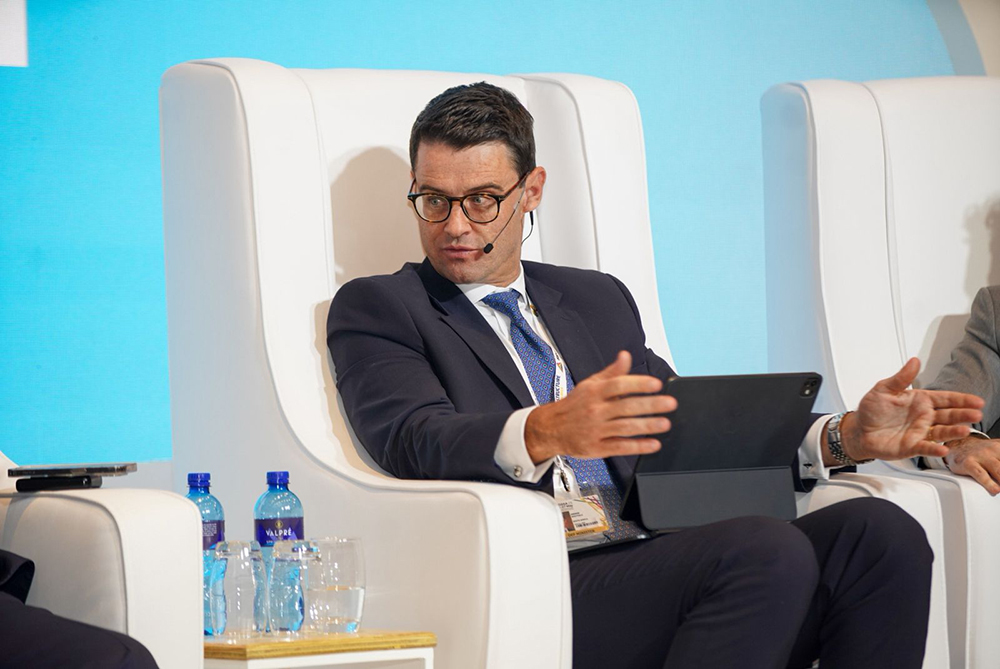Large-scale infrastructure projects are needed across Africa to unlock opportunities and realise the potential of the continent’s 1.5 billion people. This was stated by the Deputy Minister of Trade, Industry and Competition, Mr Andrew Whitfield, during his address on the topic “Infrastructure as a Catalyst for Industrialisation and Intra-African Trade,” under the African Continental Free Trade Area (AfCFTA), at the 25th Annual Sustainable Infrastructure Development Symposium South Africa (SIDSSA), held yesterday in Cape Town.
SIDSSA is a flagship event that brings together government, the private sector, development finance institutions, and infrastructure experts to explore sustainable infrastructure solutions that drive economic growth and regional integration across Africa. The symposium aims to facilitate dialogue, collaboration, and investment in infrastructure projects critical to industrialisation, job creation, and economic transformation on the continent.
Whitfield emphasised that the industrialisation of the African continent — and the reindustrialisation of South Africa in particular — cannot be achieved without a bold and ambitious infrastructure programme, due to its critical upstream and downstream benefits. He further underscored the significance of the Minister of Finance’s announcement last week regarding the allocation of over R1 trillion to infrastructure investment over the medium term, which is expected to serve as a major stimulus for economic growth across the continent.
“South Africa has an extraordinary amount of technical expertise within government and the private sector that the continent can leverage in order to drive an infrastructure-led industrialisation agenda,” he said.
In the context of infrastructure’s pivotal role in driving industrialisation and facilitating intra-African trade, he emphasised that South Africa relies significantly on its neighbouring countries — not only to advance its own reindustrialisation agenda, but also as part of a broader commitment to building a more unified Africa. He stressed that the economic development of neighbouring nations is integral to the continent-wide collaboration South Africa seeks to foster.
Moreover, he pointed out that due to inadequate infrastructure, the continent loses over 40% of its potential competitiveness — not because of a lack of talent or ideas, but simply due to logistical constraints.
“We’ve got 55 countries on the continent trying to unlock this (AfCFTA) extraordinarily complex opportunity, and one of the challenges is trying to harmonise the regulatory issues and other legal barriers to trade,” said Whitfield.
Whitfield further highlighted the important role that the technical infrastructure entities within the dtic family can play in the broader infrastructure agenda, particularly in areas such as metrology and standardisation, which are essential for improving export capacity.
As South Africa continues to champion regional integration and economic development under the AfCFTA, platforms such as SIDSSA serve as critical vehicles for advancing shared infrastructure goals. The Deputy Minister’s remarks reinforced government’s commitment to leveraging infrastructure investment not only as a foundation for industrialisation but also as a catalyst for stronger intra-African trade and sustainable growth.

The Deputy Minister of Trade, Industry and Competition, Mr Andrew Whitfield addresses the 25th Annual Sustainable Infrastructure Development Symposium South Africa 2025, highlighting infrastructure’s role in driving industrialisation and intra-African trade under the African Continental Free Trade Area (AfCFTA), in Cape Town.
Enquiries
Bongani Lukhele – Director: Media Relations
Tel: (012) 394 1643
Mobile: 079 5083 457
WhatsApp: 074 2998 512
E-mail: BLukhele@thedtic.gov.za
Issued by: The Department of Trade, Industry and Competition (the dtic)
Follow us on X: @the_dtic
Facebook: https://www.facebook.com/thedti?mibextid=ZbWKwL
YouTube: https://www.youtube.com/@thedtic
Website: https://www.thedtic.gov.za/

